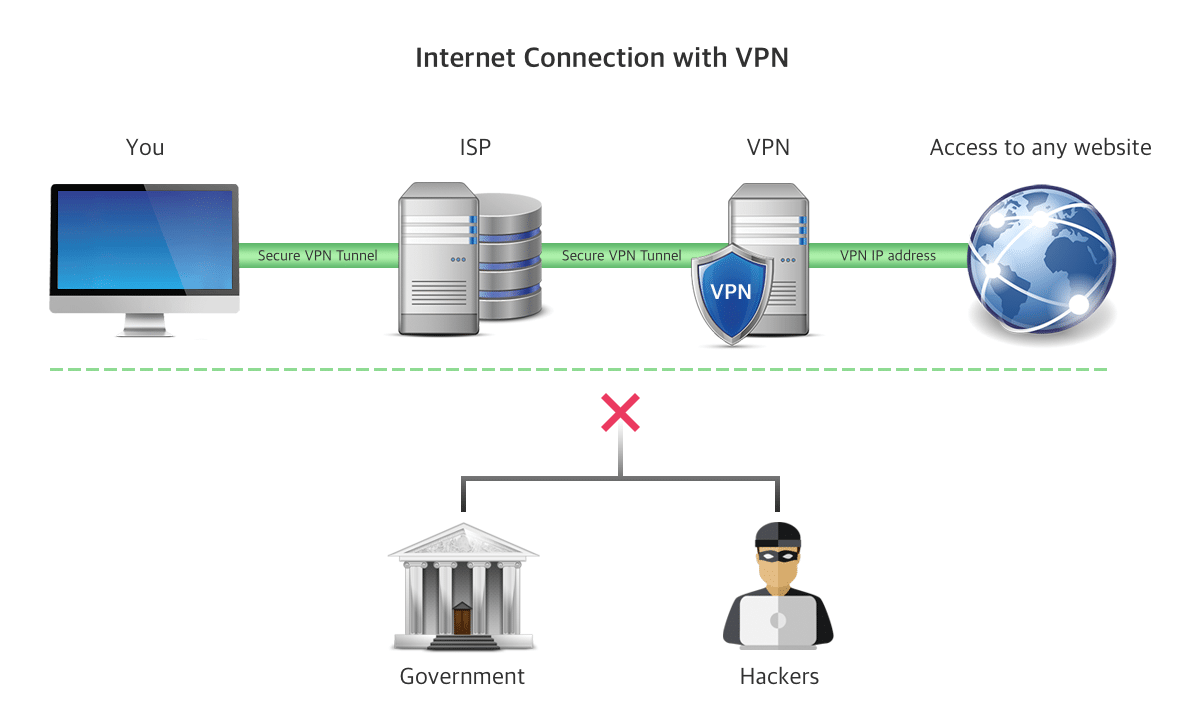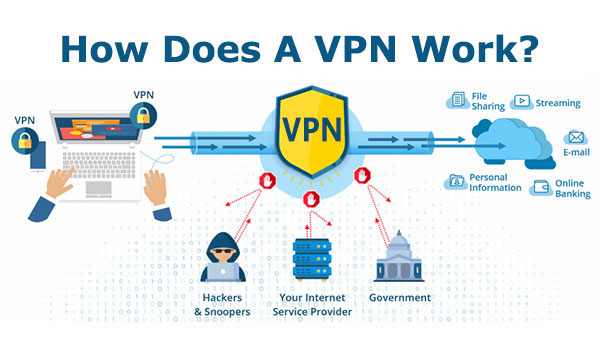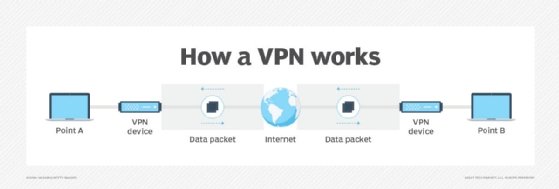Featured
Table of Contents
- – Does Starlink Work With A Vpn?
- – How A Vpn (Virtual Private Network) Works - Ho...
- – What Is A Vpn? - Vpn Definition
- – How Does A Vpn Work?
- – Virtual Private Network (Vpn) - An Introduction
- – How Does A Vpn Work And How To Choose One
- – What Is A Vpn?
- – Understanding The Ring App And Virtual Priva...
Does Starlink Work With A Vpn?
In a mobile VPN, the server still sits at the edge of the organization's network, allowing safe and secure tunneled gain access to by confirmed, licensed customers. Mobile VPN tunnels are not connected to physical IP addresses.
Hardware VPNs provide a number of benefits over software-based VPNs. A hardware VPN is more expensive than a software-based one. Due to the fact that of the cost, hardware VPNs are more viable for bigger companies.

Paid vendor options tend to be advised more frequently than totally free ones. Some VPNvendors, amongst many, consist of the following: consists of a strong collection of security functions with a large collection of servers.
How A Vpn (Virtual Private Network) Works - Howstuffworks
It does not provide too much in terms of extra features and personal privacy tools. Still, it is generally considered a good VPN service. is a VPN service with a big and varied set of distributed servers. It has strong privacy and details practices focused on security and provides extra functions such as split tunneling.
VPNs are legal in the United States, but users and companies should check if they are legal in particular nations. Many VPNs offer extremely comparable innovations, so it can be tough to pick which VPN will work best. Paid VPN services tend to be more relied on and consist of more security functions.
Around 2017, internet users in the United States found out that ISPs might collect and offer their searching history, and net neutrality ended up being a concept people had to defend-- and successfully lost. An expense was gone by the U.S. House of Representatives in 2019 to restore net neutrality, however was eventually blocked by the Senate.
What Is A Vpn? - Vpn Definition
With this knowledge, making use of VPNs ended up being a more genuine need for people.

A VPN reroutes your traffic through a remote server, securing it at the same time. Normally, when you try to access a website, your ISP (Internet Service Company) receives the request and reroutes you to your destination. When you link to a VPN, it redirects your web traffic through a remote server prior to sending it over to your destination.
VPNs assist make sure security anybody obstructing the encrypted data can't read it. A number of years back, the most common way to connect computer systems between several offices was by using a leased line. Leased lines, such as ISDN (incorporated services digital network, 128 Kbps), are private network connections that a telecom business can rent to its customers.
How Does A Vpn Work?
These connections form a single wide-area network (WAN) for the company. Though leased lines are dependable and safe and secure, the leases are costly, with costs rising as the range between offices increases. Today, the internet is more accessible than ever before, and internet service providers (ISPs) continue to develop faster and more reliable services at lower costs than leased lines.

Paid VPN services work really much like company VPNs but go through a VPN supplier to reach the web, instead of by means of a personal company. These services are incredibly easy to use. All you have to do is download the software application, install it on your device, and link to the server of your option.
Initially, let's explore an analogy that describes how a VPN compares to other networking alternatives.
Virtual Private Network (Vpn) - An Introduction
All your internet traffic is routed through this tunnel to the server, which then sends out the traffic off to the general public internet as typical. Information returning to your gadget makes the same trip: from the internet, to the VPN server, through the encrypted connection, and back to your maker.
There are a couple of options out there to establish your own, such as Overview. Doing so is fairly straightforward, however you'll either require to keep a server or lease one, which is less basic. While there are some efforts to make self-hosted VPNs more available, it's something best left to tinkerers who aspire to get their hands (digitally) filthy.
If you do not like that a company you're currently paying is benefiting from your data or if you have concerns about ISPs hoarding comprehensive details about your activities, a VPN will help. Not even your ISP can see your web traffic when you use a VPN.VPNs likewise make it harder for advertisers and others to track you online.
How Does A Vpn Work And How To Choose One
When the VPN is active, your real IP address is hidden, and anyone watching you can just see the IP address of the VPN server. By hiding your real IP address, VPNs deny snoops one tool utilized to identify and track you online. Regardless of that, VPNs do not make you fully anonymous online.

Some VPN services consist of dedicated anti-virus tools also, and some antivirus business now offer VPNs. We do not generally evaluate the malware-detecting abilities of VPNs, because we see VPNs mostly as a privacy service. To attend to the risk of malware, our company believe standalone anti-malware softwarewhether it's one you buy or the one that ships with your computerdoes a much better job.
A VPN will hide the contents of your web traffic from some observers and can make it harder for you to be tracked online. However a VPN can, at best, supply just minimal protection against the threats you're more than likely to come across on the internet: malware, social engineering rip-offs, and phishing websites.
What Is A Vpn?
All your web traffic is routed through this tunnel to the server, which then sends the traffic off to the general public internet as normal. Information returning to your device makes the exact same journey: from the web, to the VPN server, through the encrypted connection, and back to your maker.

There are a couple of alternatives out there to set up your own, such as Summary. Doing so is fairly uncomplicated, however you'll either need to keep a server or rent one, which is less simple. While there are some efforts to make self-hosted VPNs more available, it's something best left to tinkerers who aspire to get their hands (digitally) filthy.
If you don't like that a business you're currently paying is profiting from your data or if you have issues about ISPs hoarding in-depth details about your activities, a VPN will help. Not even your ISP can see your web traffic when you utilize a VPN.VPNs also make it harder for advertisers and others to track you online.
Understanding The Ring App And Virtual Private Networks ...
When the VPN is active, your real IP address is concealed, and anyone viewing you can just see the IP address of the VPN server. By concealing your real IP address, VPNs reject snoops one tool utilized to determine and track you online. In spite of that, VPNs do not make you fully anonymous online.
Some VPN services include committed antivirus tools as well, and some anti-viruses business now offer VPNs. We don't generally test the malware-detecting abilities of VPNs, given that we view VPNs mostly as a personal privacy service.
A VPN will conceal the contents of your web traffic from some observers and can make it harder for you to be tracked online. A VPN can, at best, offer only minimal protection against the hazards you're most likely to come across on the web: malware, social engineering rip-offs, and phishing websites.
Table of Contents
- – Does Starlink Work With A Vpn?
- – How A Vpn (Virtual Private Network) Works - Ho...
- – What Is A Vpn? - Vpn Definition
- – How Does A Vpn Work?
- – Virtual Private Network (Vpn) - An Introduction
- – How Does A Vpn Work And How To Choose One
- – What Is A Vpn?
- – Understanding The Ring App And Virtual Priva...
Latest Posts
The Best Vpn Of 2023 - Cnn Underscored
Best Vpn Companies: Protect Yourself Online
How To Troubleshoot Common Vpn Issues
More
Latest Posts
The Best Vpn Of 2023 - Cnn Underscored
Best Vpn Companies: Protect Yourself Online
How To Troubleshoot Common Vpn Issues